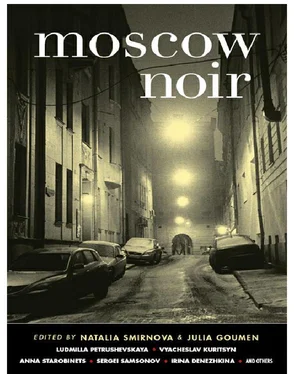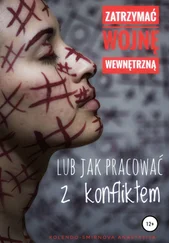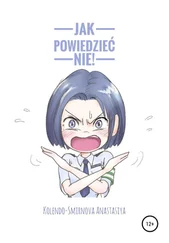He imagined clearly how that one, the other one, arrives instead of him at the theater, pays visits to the flutist. And he’d throw himself on the bed, snarling into the pillow from rage. But soon another feeling began to penetrate his impotent fury—of emptiness, total emasculation, of indifference. He had only ever experienced something similar after difficult performances. When he played a role he didn’t fully understand. One he hadn’t quite entered. He felt like a coat shoved onto a hanger; it just hangs there, dangling in the darkness, completely forgotten by everyone. Dead. He’d pinch himself and pull at his hair. He’d grab the phone. But who could he call?
Not the police.
His life gradually began to take a new turn. He shifted the telescope from the sky to the streetcar stop. For hours he’d track the people clustered there in hopes of seeing the one in the sheepskin coat. For no particular reason he kept going downstairs to the store. He hung around the counter a lot so they’d recognize and greet him. If they didn’t, he’d begin to panic. He’d loiter around the neighborhood, peering into faces, and his feet would inevitably take him back to that corner with the yellow church fence and the Gold billboard where his twin, the stranger, had disappeared.
But the twin was nowhere to be found.
What’s more, they stopped phoning him from the theater to remind him of performances and rehearsals. As if they had forgotten or fired him. Once he made the call himself, but an unfamiliar voice didn’t recognize him. He got frightened and hung up. So he stopped calling. He was afraid.
A week later, he simply got in his car one evening and drove downtown.
Under the notice Today on the poster in front of the theater, his performance was announced.
So, the impostor has already taken my place.
Relieved, the actor sat down in a café and began to drink, although he had given up alcohol after a heart attack ten years earlier. Cognac, beer, vodka—he ordered them indiscriminately. He drank greedily, without a snack, gazing between glasses at the ad behind the dusty window. Your blood will save a life , a girl urged from the poster, smiling her celluloid smile.
He couldn’t remember how he got home. The smoke-filled cellar at Novokuznetskaya station and the patchy shadows, in whose company he’d swigged down vodka and belted out songs, flashed in his memory.
He collapsed in his clothes but couldn’t fall asleep because he was sick at heart. Pulling his knees to his chin, he lay there and listened to the very same sentence that kept echoing in his head. Your blood will save a life , someone’s quiet, velvety voice kept repeating.
Your blood will save a life.
He had finally begun to doze off when a thick, enveloping nausea overtook his body. It rose up like sludge and flooded his consciousness. His heart became a big balloon about to burst into pieces. So that’s how one dies , he thought, starting to lose consciousness, vanishing slowly into an airless well and resurfacing later in the darkness of a sleepless night. At dawn, coming to on sweat-soaked sheets, he moved to an armchair. Hunched over from the pain in his heart, he sat there until daylight.
Around 11 he was jolted by the ringing telephone. It was a call from the theater; the troupe, it turned out, had just returned the day before from a short tour. The director’s assistant was reminding him there was a performance that evening. “In your honor,” she flirted.
“But how can…?” he mumbled into the receiver.
“The new cloakroom attendant got it mixed up,” the woman nattered on. “Instead of Tomorrow , he put up the sign that said Today . We’ll rehearse the dance an hour before curtain, as usual.” And she hung up.
Standing under the shower, he came to his senses. He was amazed how quickly, with one single phone call, the nightmare vanished. It simply came unglued like a plastic advertising sticker and flew away in the wind. Sobered up, cheerful, he set about tidying the whole apartment. He washed the floor and windows. He dropped off his underwear, which had been lying in the corner since that day, at the laundromat. He for the first time ever phoned his daughter.
“Imagine, such nonsense!” he said, chuckling into the receiver. “I knew they were supposed to go on tour, but I simply forgot.”
“Everyone’s so nervous!” The daughter gave a Chekhovian sigh, and it was obvious she was thinking of someone else as well.
“The Irish call one’s double his fetch,” she said in parting. “I’ll send you some pills. That should help.”
That evening they gave the performance. And they say he played Caesar as never before, fiercely, implacably, desperately. In such a way that before the ovation, when the emperor exits into eternity, a pause hung in the air for a few seconds—as in olden times, when the spectator truly believed what was happening on stage.
Returning home, the actor didn’t feel his usual fatigue. On the contrary, blood was racing through his veins, his energy was overflowing. He even got out of the cab and walked home on foot, swinging his arms widely. A new life , he thought, will definitely begin from this night forward. It will be wonderful and serene. Unpredictable and clear .
Not like the one which he had lived.
He entered his apartment. Without taking off his coat, he began to wander around the room. How about going back again on the street? he thought. How about a breath of fresh air? To hell with it, how about meeting some woman, maybe even from the railroad station? Maybe go to a café, or a movie.
He stood looking out the window, watching how persistently and interminably the cars moved around the ring. Then his gaze fell on the telescope. It was pointing to the streetcar stop, as before. And rubbing his palms, he triumphantly sharpened the focus.
In the lens, two round-shouldered teenagers stood shifting their feet and spitting noiselessly. He moved the tube forward a millimeter and saw next to them a man with a briefcase.
His twin, his double. That very one.
When he ran out onto the street, the kids were trying to snatch the briefcase out of the man’s hands. An empty jar was rolling along the asphalt. A hand flashed, the sound of a dull, crunching blow. The double clutched at his face.
“Hey!” shouted the actor across the street. “What do you think you’re doing!”
And he stepped out into the road.
The impact of a car flipped him around several times in the air. He fell, and tumbling along the asphalt, he came to a stop, his arms flung wide.
Through the dark sludge that was flooding his consciousness, he was able to see his double take off down a side street. Then someone’s hands ran along his body, and he thought about the flutist, how she would undress him, caress him. But these were other hands. Fast and clumsy, a man’s hands. They dug into his pockets and grabbed his watch. Then wiped it off with disgust on the sleeves of his raincoat.
“Look at this weirdo, he’s a copy,” sounded over his ear. “Same face.”
There was some spitting and a swish of fabric. The last things he saw were two pairs of tattered sneakers retreating swiftly down the street.
PART III
FATHERS AND SONS
DADDY LOVES ME
by Maxim Maximov
Perovo
Translated by Matvei Yankelevich
Her students hated her. For not being young, pretty, or fun. For not being different from who she was. Or they loathed her for something altogether different. Who knows what reasons people find to hate each other…
Читать дальше












